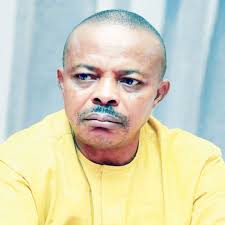The President of the Nigeria Labour Congress (NLC), Comrade Joe Ajaero, has revealed that during negotiations on the new minimum wage with President Bola Tinubu, the organised labour rejected an offer to increase petrol pump prices in exchange for agreeing to a minimum wage of ₦70,000.
The discussions, which took place at the Presidential Villa, were part of ongoing efforts to address the economic strain caused by the removal of fuel subsidies.
Speaking during an interview on Arise News on Friday, Ajaero disclosed that while labour had initially demanded ₦250,000 as the new minimum wage, the negotiation reached a stalemate at ₦62,000. The final offer of ₦70,000 was settled after further dialogue with the President.
READ ALSO: ‘We Feel Betrayed’, NLC Laments Amid Fuel Price Hike
Ajaero recounted that during the meeting, President Tinubu proposed an increase in petrol prices as a trade-off for accepting the higher wage. According to him, Tinubu suggested labour representatives travel to other West African countries to assess how much they were paying for fuel, citing prices as high as ₦2,000 per litre in some places.
“I said, increase what? He said, since I said subsidy is gone, we should have gotten the appropriate price,” Ajaero narrated. The NLC immediately rejected the suggestion, opting instead to focus solely on wage discussions. Ajaero emphasized that the labour delegation did not have a mandate to negotiate fuel price adjustments.
Despite the stalemate, both parties ultimately agreed on ₦70,000 as the new minimum wage. However, the NLC President stated that the union will reconvene next week to address the recent fuel price hike, stressing that no single individual within the labour movement can make decisions without consulting the NLC’s governing bodies.
READ ALSO: Why We Accepted 70,000 Minimum Wage – NLC
Ajaero clarified that while there has been no immediate call for a strike following the price increase, the NLC is following due process. “No NLC President will come out and say, we are going to start a strike tomorrow or next tomorrow without the organs meeting,” he explained, adding that consultations are underway.
The outcome of the forthcoming meeting will determine the union’s next steps as it navigates the impacts of fuel subsidy removal and the broader economic challenges facing Nigerian workers.

